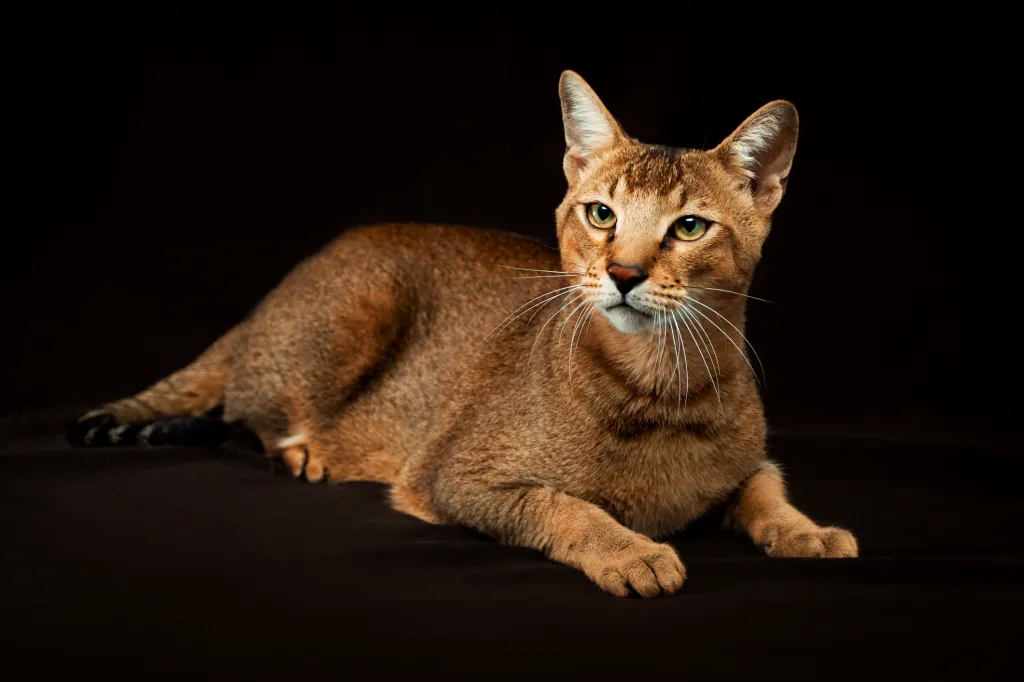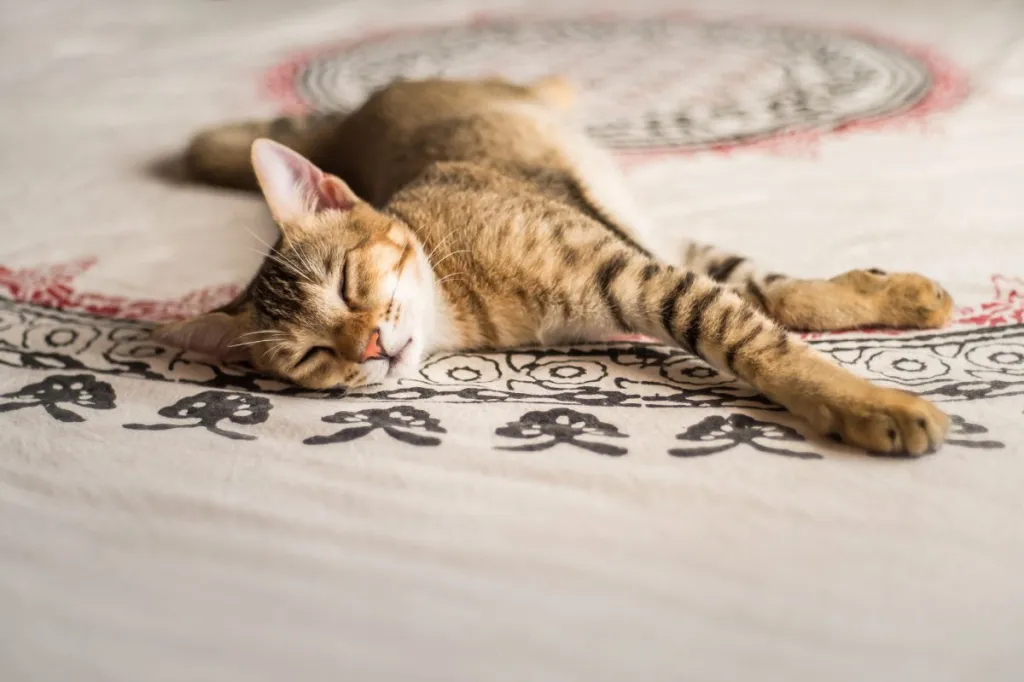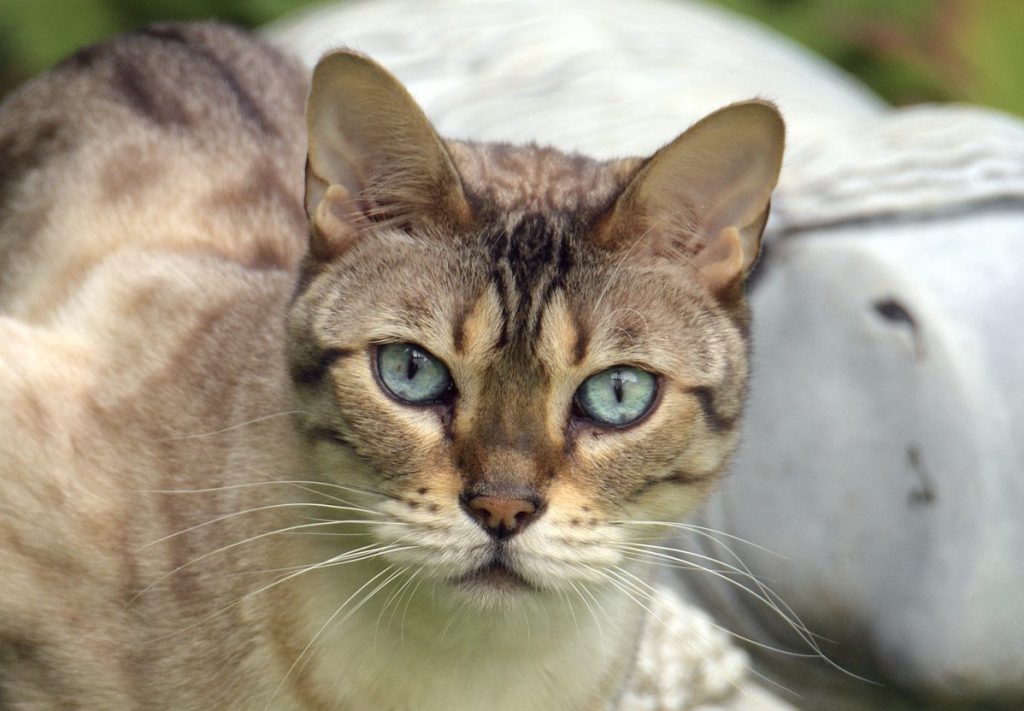The Chausie cat, a unique breed, is the result of a fascinating blend of domestication and wild ancestry. Recognized for their striking appearance and playful demeanor, the Chausie is a hybrid cat that originated from the crossbreeding of Abyssinian cats with the jungle cat (Felis chaus), a wild cat. This unique combination results in a cat that exhibits both the elegance of a domestic companion and the untamed allure of its wild lineage.
Characterized by their large, muscular build, Chausie cats possess a distinctly wild appearance, enhanced by their striking coat patterns and pointed ears. With a rich history that traces back to ancient Egypt, these felines were once revered for their association with Egyptian pharaohs. Today, Chausies are cherished for their intelligence, agility, and affectionate nature, making them not only visually captivating but also engaging companions for those who appreciate the allure of a hybrid cat.
When considering a Chausie, it’s advisable to prioritize adopting from rescue organizations or shelters to provide a loving home to a cat in need. However, if you decide to purchase a Chausie kitten, it’s crucial to choose a reputable breeder. Conduct thorough research to ensure that the breeder follows ethical practices and prioritizes the well-being of their cats. Reputable Chausie breeders prioritize the health and temperament of their cats, conduct necessary health screenings, and provide a nurturing environment for the kitties. This active approach ensures that you bring home a healthy and happy kitty while discouraging unethical breeding practices.
Quick Facts
- Origin: Developed in the USA, but inspired by the Jungle Cat of Africa.
- Size: Medium to Large (15-20 inches tall, 12-25 pounds)
- Breed Group: Hybrid (domestic cat x Jungle Cat)
- Lifespan: 12-15 years
- Coat: Short, dense, and ticked (similar to Abyssinian) with various colors like black, brown, cinnamon, and ruddy.
- Temperament: Intelligent, playful, affectionate, loyal, athletic, vocal, curious.
- Exercise Needs: High – they love to climb, jump, and explore.
- Training: Easy to train, enjoy learning tricks and games.
- Grooming: Weekly brushing.
- Health: Generally healthy, but prone to some genetic health conditions like hypertrophic cardiomyopathy (HCM).
- Chausies have a shorter intestinal tract, and thus are incapable of processing plant ingredients. They must have an all-meat diet.
- The name Chausie comes from the scientific name for jungle cat, Felis chaus.
- The Chausie can be dated back to Ancient Egypt, where domestic and jungle cats likely mated naturally. The breed was intentionally bred in the 1990s.
Chausie Pictures


-
Affectionate with Family
Some cat breeds are typically independent and aloof, even if they’ve been raised by the same person since kittenhood; others bond closely to one person and are indifferent to everyone else; and some shower the whole family with affection. Breed isn’t the only factor that goes into affection levels; cats who were raised inside a home with people around feel more comfortable with humans and bond more easily.

See Cats Less Affectionate with Family -
Amount of Shedding
If you’re going to share your home with a cat, you’ll need to deal with some level of cat hair on your clothes and in your house. However, shedding does vary among the breeds. If you’re a neatnik, you’ll need to either pick a low-shedding breed or relax your standards. This furniture cover can make it easier to clean up cat hair and keep it off your sofa!
-
General Health
Due to poor breeding practices, some breeds are prone to certain genetic health problems. This doesn’t mean that every cat of that breed will develop those diseases; it just means that they’re at an increased risk. If you’re looking only for purebred cats or kittens, it’s a good idea to find out which genetic illnesses are common to the breed you’re interested in.
-
Potential for Playfulness
Some cats are perpetual kittens—full of energy and mischief—while others are more serious and sedate. Although a playful kitten sounds endearing, consider how many games of chase the mouse-toy you want to play each day, and whether you have kids or other animals who can stand in as playmates. A classic wand cat toy like this one is perfect for playful felines!
-
Tendency to Vocalize
Some breeds sound off more often than others with meows, yowls, and chattering. When choosing a breed, think about how the cat vocalizes and how often. If constant “conversation” drives you crazy, consider a kitty less likely to chat.
-
Kid-Friendly
Being tolerant of children, sturdy enough to handle the heavy-handed pets and hugs they can dish out, and having a nonchalant attitude toward running, screaming youngsters are all traits that make a kid-friendly cat. Our ratings are generalizations, and they’re not a guarantee of how any breed or individual cat will behave; cats from any breed can be good with children based on their past experiences and personality.
-
Friendly Toward Strangers
Stranger-friendly cats will greet guests with a curious glance or a playful approach; others are shy or indifferent, perhaps even hiding under furniture or skedaddling to another room. However, no matter what the breed, a cat who was exposed to lots of different types, ages, sizes, and shapes of people as a kitten will respond better to strangers as an adult.
-
Easy to Groom
Some breeds require very little in the way of grooming; others require regular brushing to stay clean and healthy. Consider whether you have the time and patience for a cat who needs daily brushing. You should definitely pick up this awesome de-shedding tool for cats of any hair length!
-
Intelligence
Some cat breeds are reputed to be smarter than others. But all cats, if deprived the mental stimulation they need, will make their own busy work. Interactive cat toys are a good way to give a cat a brain workout and keep them out of mischief. This scratcher cat toy can keep your smart kitty busy even when you’re not home!
-
Pet Friendly
Friendliness toward other household animals and friendliness toward humans are two completely different things. Some cats are more likely than others to be accepting of other pets in the home.
Chausie History
The history of the Chausie may go back to ancient Egyptian times when people would domesticate jungle cats and even mummify them! However, it was in 1990 that jungle cats from the swamps of south central Asia were intentionally bred with the Abyssinian, likely in the United States, and the outcome was the Chausie.
Despite the breed’s wild cat heritage, the Chausie is actually renowned as a super social, people-friendly cat. The Chausie was officially granted championship status by the International Cat Association (TICA) in 2013. These days, you may find Chausies in shelters or in the care of rescue groups. So make sure to consider adoption if you decide that this is the breed for you!
Chausie Size
The Chausie is a large-sized cat breed. As is often the case, exact size standards might vary.
Most Chausies weigh in at 15 to 30 pounds. That said, some may be larger or smaller than average.
Chausie Personality
First of all, there’s no getting around the fact that the Chausie retains a lot of their wild cat traits. This breed will be active for long spells of the day and prefers to act in an athletic manner, rather than a delicate and dainty one. The Chausie is a cat who makes a lot of demands on their owner and needs a high degree of interaction and play time. In many cases, the breed has shown a willingness to play fetch with toys!
The Chausie is also known to be a very intelligent feline so you’ll want to constantly keep them challenged with a series of smart and interactive toys that you rotate on a regular basis. Still, despite the Chausie’s energetic traits, they’re also a cat who will form very strong and loving bonds with the adult humans in their life, and there’s definitely an affectionate side to the feline.
Chausie Health
Chausies are generally considered to be healthy cats; although, it’s important to schedule regular wellness visits with your cat’s vet. While most Chausies are healthy, they can become prone to some of the same conditions that the Abyssinian breed faces. Some of the more common health problems Chausies suffer from include:
- Obesity: Obesity in cats is a prevalent and serious health concern that can affect their overall well-being. It occurs when a cat consumes more calories than it expends, leading to an excess accumulation of body fat. Several factors contribute to obesity in cats, and understanding them is crucial for prevention and management.
- Intestinal issues: Chausie cats, like all cat breeds, can be susceptible to various intestinal issues. However, it’s essential to note that the risk and prevalence of specific health concerns can vary among individual cats, and genetics, environment, and overall health play crucial roles. Their short intestinal tracts, inherited from their wild parent, prevents them from processing plant ingredients.
Chausie Care
As with all cats, it’s important to keep up your Chausie’s regular veterinary checkups to detect any health concerns early. Your vet can help you develop a care routine that will keep your cat healthy. It’s important to note that the Chausie requires a very specific diet that’s totally comprised of meat. Feeding the breed cat foods that include grains and plant matter can lead to digestion issues.
Beyond diet, you’ll definitely want to add at least one scratching post to your living environment. This can help promote healthy scratching and keep the cat’s nails in good condition. The Chausie’s ears should also be examined regularly for signs of dirt building up or possible infection. It’s advisable to talk with your vet about starting a regular teeth brushing regimen that will suit your Chausie. Your vet can advise you about specific brands and techniques.
As with any breed that has high energy levels, the Chausie will need to be provided with enough space to run around and explore, so you’ll want to add a couple of cat trees to your living situation. It is essential that the Chausie can partake in enough exercise–not least to ward off the chances of feline obesity setting in.
Chausie Coat Color And Grooming
The Chausie’s coat comes in three colors: Brown tabby, solid black, and grizzled tabby.
When it comes to grooming, the Chausie is a very low maintenance breed of feline. You can brush their coat once a week, which will help lessen the chances of hairballs or mats forming. But in general, this is not a cat who sheds much or requires a lot of hands-on grooming from their humans.
When it comes to climate, the Chausie is generally an adaptable breed of cat. Although, you should always make sure that there’s enough shade and fresh water available during the hotter months.
Children And Other Pets
The Chausie is not usually recommended as a cat who does well with young children. This is because the breed retains some wild instincts and traits from their Jungle Cat heritage. When it comes to other household pets, the Chausie fares well with many domestic animals, especially dogs. However, you’ll want to supervise early interactions between the new cat and existing pets. Ultimately, early socialization really pays off with this breed. Make sure to reward your Chausie for good behavior when you bring them home to your family!
Chausie Rescue Groups
It may be hard to find a breed specific rescue for Chausies because they are a somewhat rare mixed breed. However, you may want to try shelters and rescues that cater to all types of cats, including Chausies, as well as your local shelter. Here are some nonprofit rescues you can try:
More Info For You
If you’re also looking for a dog, check out DogTime’s dog breed page!





